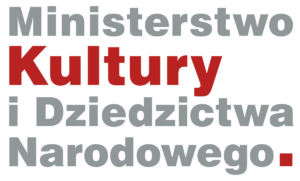Ignacy Jan Paderewski, known as “the king of pianists” or “the wizard of the keyboard”, is one of the eminent Poles who materially contributed to the restoration of Poland’s independence. He is admired not only for his musical achievements, but also for his exceptional charisma and social work for Poland. Soon, thanks to the Kulski Foundation, we will be able to learn more about Ignacy Jan Paderewski, a Prime Minister and Minister of Foreign Affairs, as well as feel the air of the past days and be taken to one of his performances. All that will happen in the Bristol Hotel.

On 20 September 2018 at 18:30, the Bristol Hotel will host a special event, The piano concert of Ignacy Paderewski music with the 1920s and 1930s fashion show. Music of this eminent Polish composer will be performed by Krzysztof Książek, a semi-finalist and award-winning participant of the 17th International Fryderyk Chopin Competition in Warsaw. The fashion show is conducted by Ela Piorun, a designer working for Agata Duda, the First Lady of Poland. The event’s guests will also have an opportunity to enjoy a special exhibition entitled Paderewski in the Service of Independent Poland, consisting of eight boards with photographs and summaries of events from the composer’s life.
The composer of Polish independence
For the world, he was above all a famous artist, composer and pianist. The Polish people see him as an outstanding politician and statesman. Ignacy Jan Paderewski became successful with hard work and talent, and when he was at the very top, he used everything he achieved to promote Polish national independence.
“Polish freedom has many fathers, but as the Foundation, we decided to celebrate it with recalling Paderewski’s historical role. It wasn’t a difficult choice. It is his signature that appears on the Treaty of Versailles, next to Roman Dmowski’s,” says Barbara Ratajska, President of the Board of the Kulski Foundation.
Like a jar of confiture
Paderewski was an extraordinary persona. In the first years of his global career, he would accept almost all concert offers, and sometimes he performed for free. In less than two decades, he became a musical powerhouse on the other side of the Pond. He was called “the Dean of Pianists”, “Titan”, “Maestro” or “the Beloved Phenomenon”. He kept breaking new records, too. He filled a Chicago venue with the crowd of 4000, and his concert at the Madison Square Garden in NYC was sold out with 16 thousand people attending the event. When he played, the audience behaved like the Beatles fans the 1960s. Sometimes, 90 percent of the listeners were women, crazy about the charismatic artist. “The long-haired pianist has the same effect on New York women as a jar of confiture has on children in the orphanage,” wrote an American journalist. Ladies had their stockings embroidered with notes of his music and waited for him with scissors in hotel rooms, hoping to steal a lock of his hair, if nothing else. Shops sold “Paderewski” wine, perfume, or even “Padroosky” hair growth ointment.
The Statesman
Enjoying tremendous public support and popularity, he never spared any effort to advance the interests of his homeland. His acquaintance with US President Woodrow Wilson proved to be the most valuable. It was thanks to Paderewski that Polish affairs were reflected in the 13th of the President’s famous Fourteen Points. “I take it for granted … that statesmen everywhere are agreed that there should be a united, independent, and autonomous Poland,” President Wilson said in a speech to the US Senate. Due to his huge international recognition and respect, he was appointed Prime Minister of the Second Republic of Poland. His term of office was short, lasting 313 days. In 1921, Paderewski decided to return to music. He settled in Morges, Switzerland. He started touring the world again. He also returned to philanthropy, sharing his wealth with those in need. But he never forgot his homeland.
Honorary Sponsor: Prof. Piotr Gliński, Minister of Culture and National Heritage
Strategic Partner: Polskie Górnictwo Naftowe i Gazownictwo S.A.
Honorowy Patronat
Minister Kultury i Dziedzictwa Narodowego Prof. Piotr Gliński

Partner Strategiczny
Polskie Górnictwo Naftowe i Gazownictwo SA.

Patroni medialni:
